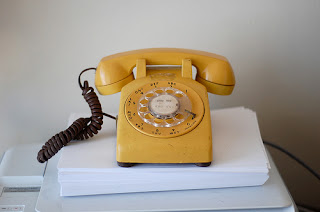How Lifestyle Inflation Can Sneak Up On You
 Many of us know that a good way to increase net worth is not to start spending more every time we get a raise. For me, this means that in my monthly budget, it says "Income" on one line, and then below that, it says "Raise." I don't even consider the raise money to be part of the income I have available to spend each month; I save it all.
Many of us know that a good way to increase net worth is not to start spending more every time we get a raise. For me, this means that in my monthly budget, it says "Income" on one line, and then below that, it says "Raise." I don't even consider the raise money to be part of the income I have available to spend each month; I save it all.Even if you make a concerted effort like I do to avoid lifestyle inflation, it can still sneak up on you in subtle ways. You get a nice new pair of pants, only to get them home and find that you don't have a single shirt that is nice enough to go with them. You've already gotten attached to how great you look and feel in the pants, so returning them isn't an option. Suddenly, you have to buy a couple of nice shirts to go with the pants. Then nicer shoes. Then a purse. Then coordinating jewelry. Before you know it, that great clearance bargain you got on your new pants has turned into a $200 spending spree and a growing dissatisfaction with your old clothes that just don't look that nice anymore compared to your new digs.
Here's another example. I used to decorate my walls with 4x6 photos of friends and places I'd visited. I used masking tape rolled up and stuck to the back of the photos and had them printed with white borders so that they looked a little nicer, sort of like they were framed. But then I actually bought a picture frame. I decided that black was a good color to match the photo I wanted to frame. Once I bought that one frame, photos attached to the wall with masking tape didn't look good anymore. I bought a bunch of black frames for my other photos. Then, with all the black frames, I had to buy new black bookcases to match. Even though I purchased the frames and the bookcases for as little money as possible, it still cost me a good $300 in the end. I'm not dissatisfied with how I spent the money or how my apartment looks, but this is a great example of how one seemingly insignificant purchase can have a much larger impact on your wallet.
One way to avoid lifestyle inflation is to choose friends who don't own a lot of showy possessions. This way, you won't feel like your belongings are inferior when you spend time with them. If the people you regularly spend time with don't drive showy cars or have a 42 inch LCD TV, you're less likely to start coveting these items yourself. I've never consciously chosen friends who spend money similarly to me, but it seems that the people who invite me to do expensive things eventually realize that I've declined their invitation one too many times and we simply stop spending time together. Most of the time, it's even easier than that: we tend to choose friends who share our values, and if you value frugality, you're likely to attract like-minded people.
Another way to avoid lifestyle inflation is to make your purchases count. When you buy something new, make sure it is of high quality and will last a long time. If you buy a good computer in the first place, you're less likely to get dissatisfied with it after a year and want to run out and buy a new one. You'll be satisfied enough with what you have that the hassle of researching a new purchase and transferring all of your existing files and programs to a new computer won't seem worth it. If you buy comfortable, durable shoes, you probably won't give a second thought to visiting a shoe store more than once or twice a year (if that). You'll save money on shoes, and you'll save even more money by avoiding the store. Staying away from stores is also a great way to keep your desire for new things at bay.
Surprisingly, it is possible to make purchases that do constitute lifestyle inflation but that won't have longer reaching consequences on your wallet. For example, if you have an older iPod and want to upgrade to a newer one, you can do so relatively inexpensively if you sell your older iPod on eBay or Amazon to offset the purchase price of the new one. If you don't use a bunch of accessories with your iPod (like armbands, skins, and such) there won't be any additional ongoing expenses associated with the purchase of your new iPod that you didn't already have from your old iPod (such as iTunes downloads). In this example, upgrading your iPod can be cheaper overall than buying a new pair of pants from the clearance rack.
If you want to avoid lifestyle inflation, you need to consider the full impact of the purchases you make, even the ones that seem relatively insignificant. That being said, I also believe that you should spend some of your money on things you enjoy. The goal here is not to deprive yourself, but simply to be aware of the real cost of your purchases so that you can make fully-informed decisions about how you want to spend your hard-earned money.
Photo by d_vdm


Comments